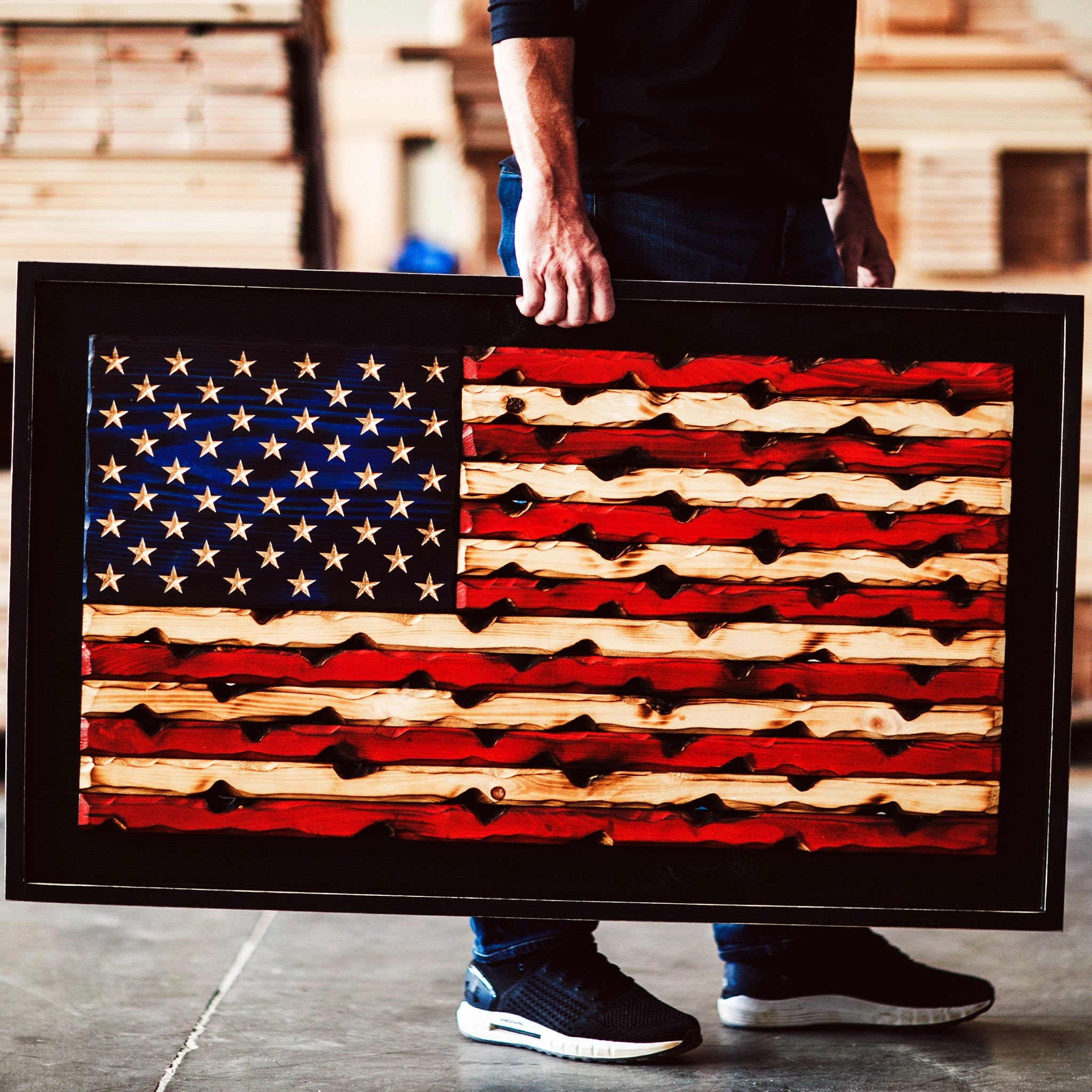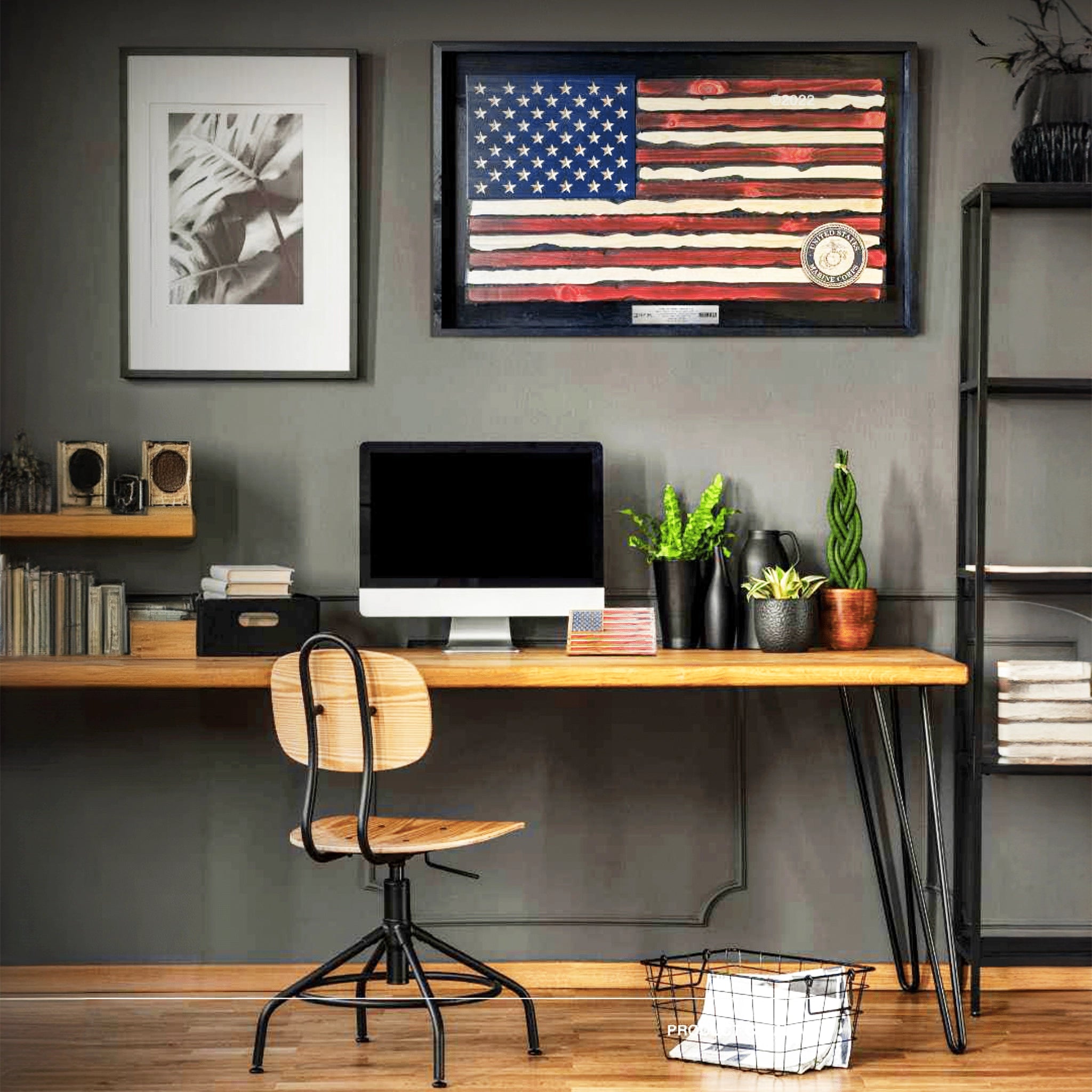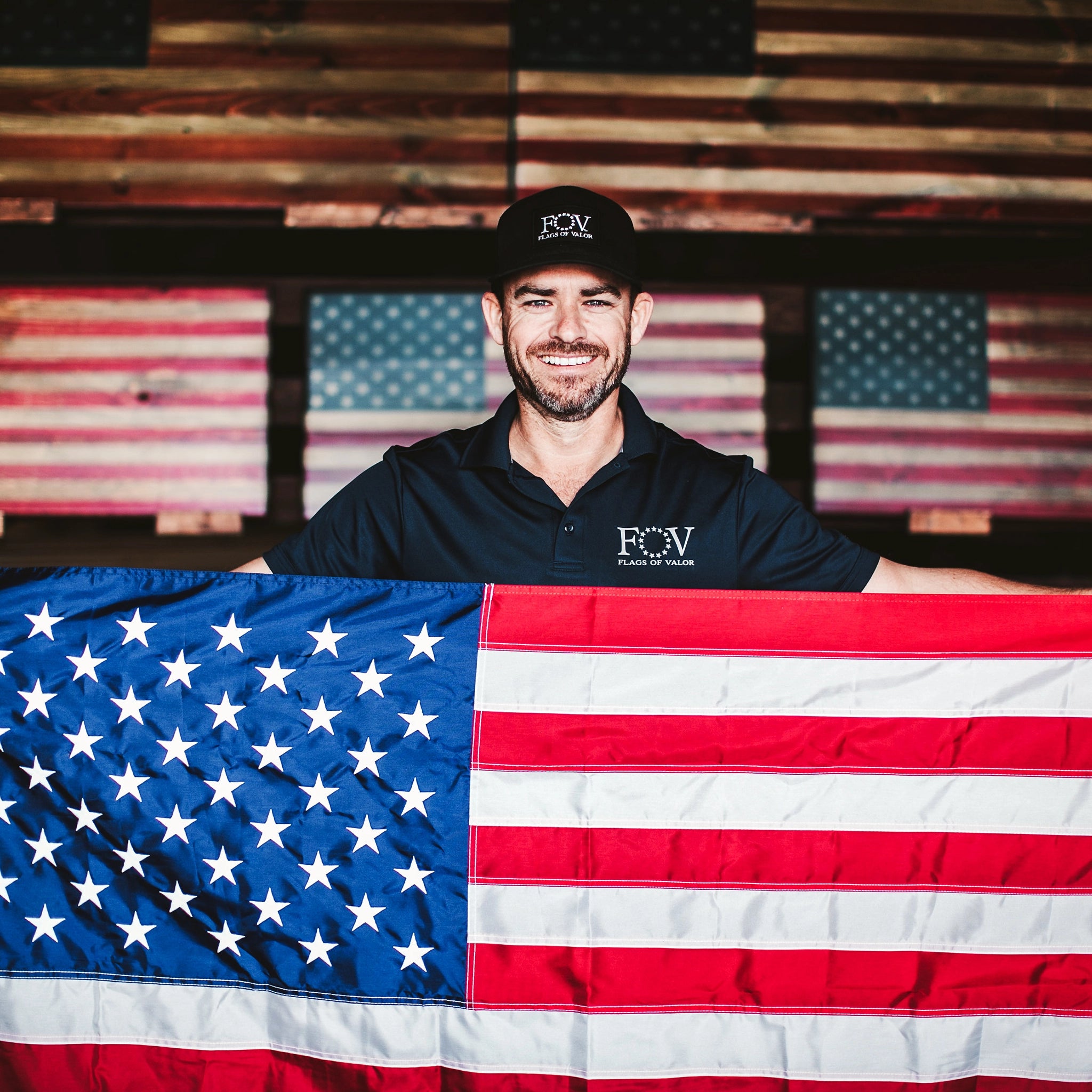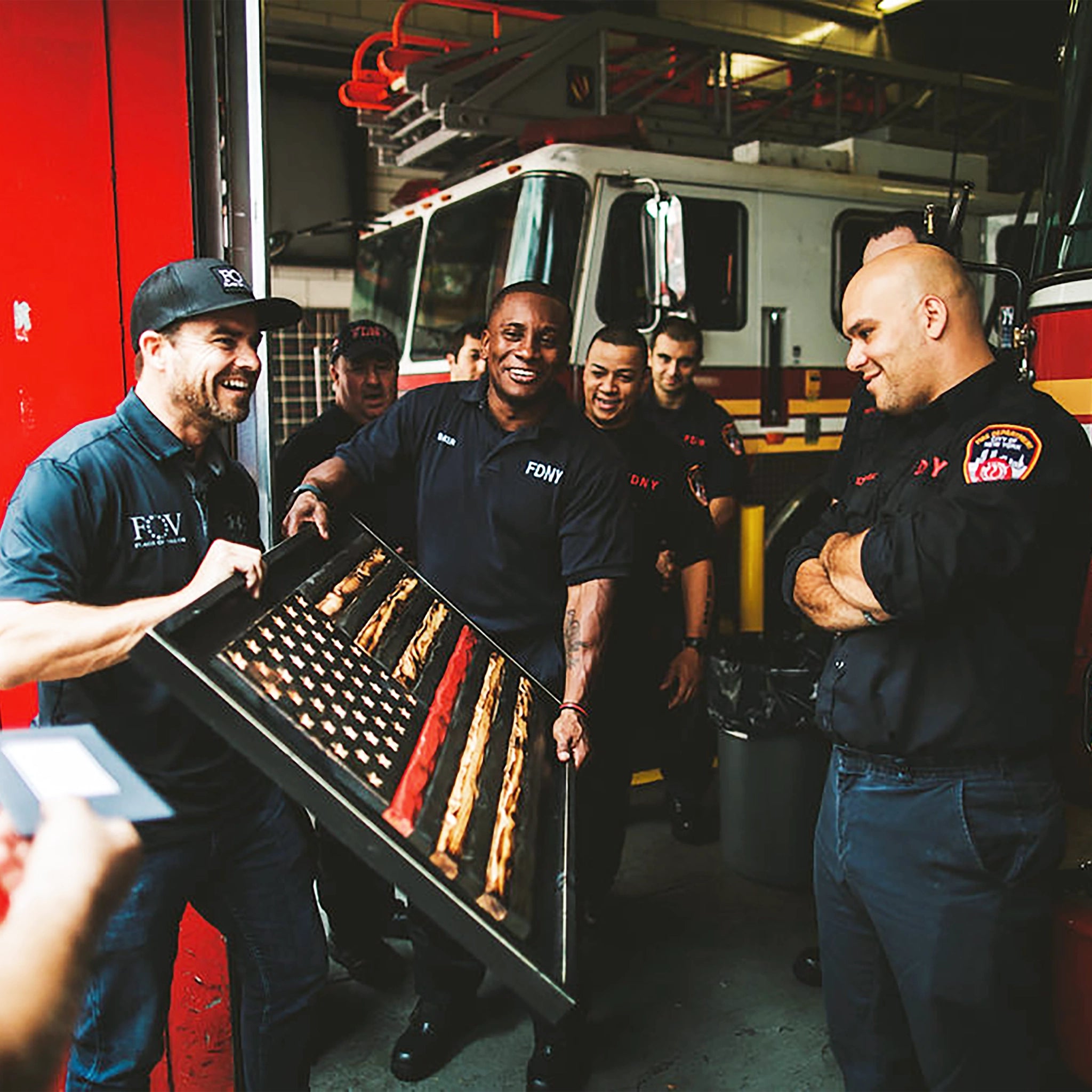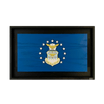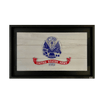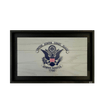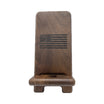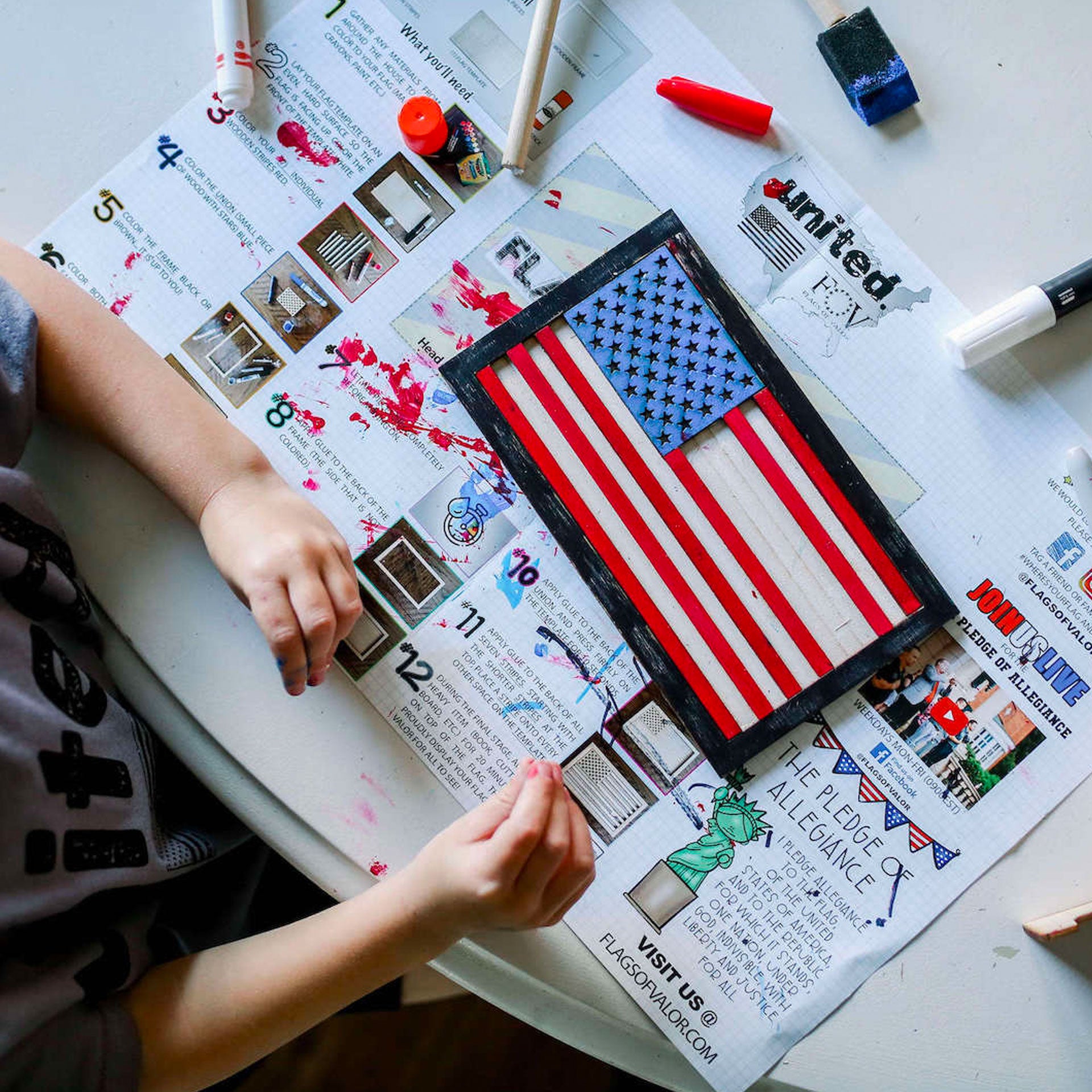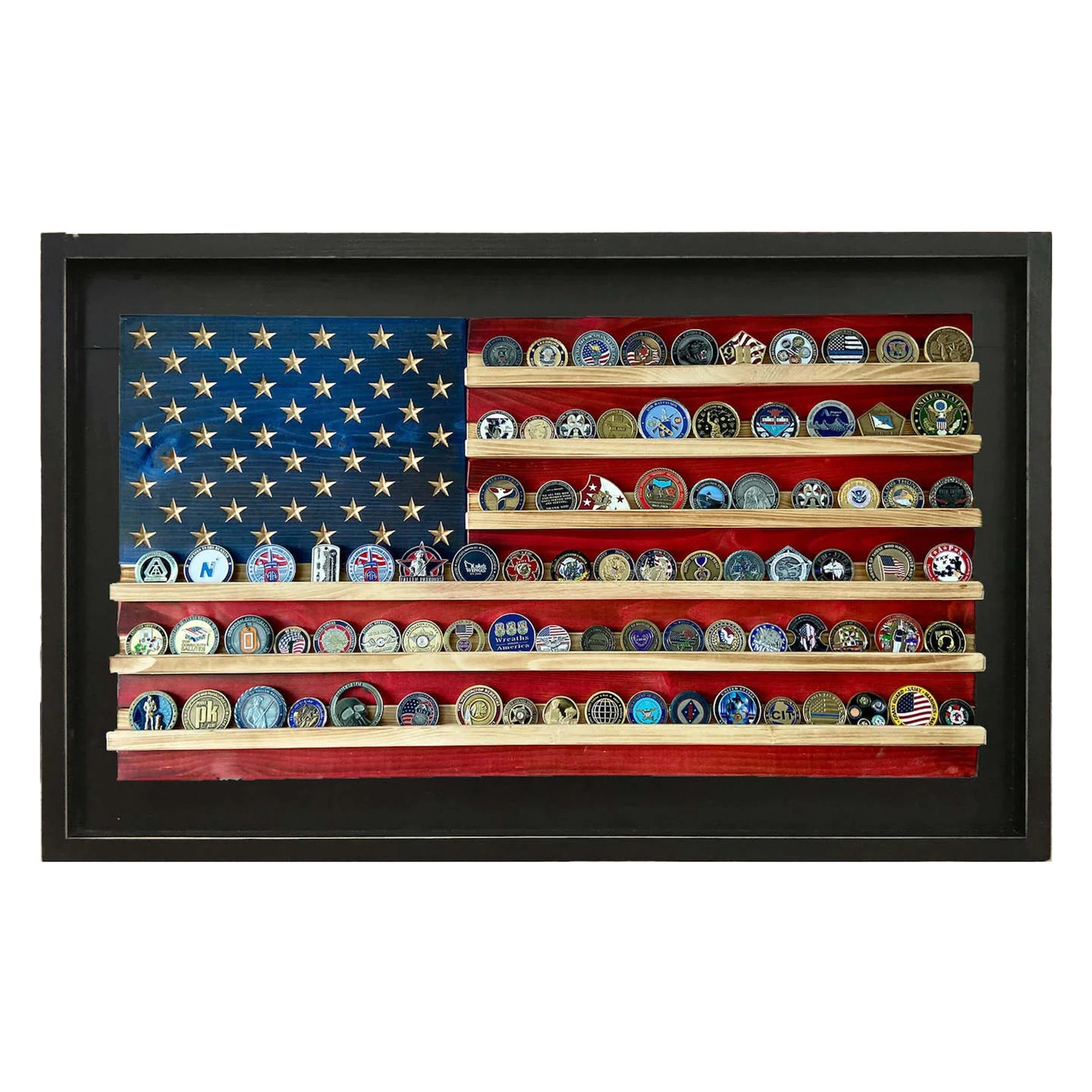Celebrating Military Spouse Appreciation Day 2023
In honor and celebration of Military Spouse Appreciation Day, we sat down with Lauren Wilburn, Flags of Valor Director of Business Development, about her time, experience and learnings as a Military Spouse. This is what she had to say:
Can you tell us about your experience as a military spouse?
I was an active duty Marine Corps spouse for 8 of the 14 years my husband served in the United States Marine Corps. During those 8 years, our family was stationed at two different bases - 8th and I Marine Barracks Washington, DC, and Marine Corps Air Ground Combat Center, Twentynine Palms, CA. What I experienced as a spouse during those years were pivotal in shaping the “whole person” I am today.
Like most active duty spouses, my journey included many highs and lows, moments of knowing and not knowing, periods of great grief and great joy, and the making of memories and friendships that will last a lifetime.
If someone were to ask me if I would do it over again, knowing what I know now about what we would go through as a newly married couple, as a young family, as a spouse, as individuals… without hesitation the answer would always be “yes.” I wouldn’t change what we experienced over our 8 years together in the Marine Corps because it led us to where we are today and for that, I am quite grateful.
What were some of the challenges you faced, and how did you overcome them?
Some of the biggest challenges I faced were becoming comfortable with change and learning that I could do really hard things. I was 21 years old when we got married and I had so many plans for what I was going to do and what our life would look like. I can confidently say at 34 years old, my life does not look like how the young me had planned it. None of my plans included the odd jobs I’ve worked over the years because of the demands of living an active duty lifestyle, deciding to homeschool in order to give my children some sense of stability, giving birth while my husband was deployed, or showing up to important life events alone. While some of the things I’ve gone through have been really hard, I feel lucky to have been able to experience them because they have allowed me to realize I really could do it. I learned that I could do the things that scared me or made me feel uncomfortable or even sad. I could choose to grow and I could choose to accept that my life is good and full and beautiful even if it looked different than what I thought it would look like.
How did you support your spouse during their time in the military, both emotionally and practically?
Supporting my spouse meant showing up. It meant that his “duty to country” also became my “duty to country.” Support was being physically present for the both of us to our children when he couldn’t be there because he was deployed or training or on duty. Support was filling my dining room with lots of Marines who had nowhere to go for the holidays. Support was trying hard to smile and to be brave when unwelcome news was being given. Support was the act of constantly trying to find some good in every situation no matter what it looked like on the outside or how it felt on the inside. Support was doing whatever needed to be done so that he could focus on whatever he was called to do or wherever he was called to go.
What advice would you give to someone who is currently a military spouse, or who is about to become one?
I would tell them that while it is a hard life, it can also be a beautiful and rewarding one. The difference lies in the choices made in the moments when it seems there isn't a choice at all. I have met some of the most amazing people who have held my hand through some of the biggest moments of my life during my time as an active duty military spouse. Being a military spouse often gives you the great opportunity of seeing and experiencing life through a different lens than most people. Your life becomes filled with many small moments of intense gratitude. Small moments that most people take for granted will become your great treasures. These treasures will get you through the hard and will help to give you courage not only to keep going but to also find those who can walk the journey with you. I would tell them that through it all, they might even consider themselves luckier than most.
How did being a military spouse shape your personal and professional goals?
At 21 years old, I had dreamed of working in a big city for a big company as a visual merchandiser. I was on my way there when my husband and I found out we were expecting our first child and it became clear that in order for our marriage/life to work while he was in the service, his career would have to come first. I have pivoted a lot since then. The upside to having to constantly pivot is that you learn where your passions lie. I have learned that if I am going to do anything, add anything extra to my plate, it has to have meaning. My experiences as an active and post active duty military spouse have really shaped what and to where I want to give my time to. I have a deep love for our country’s veterans and their families and it is meaningful to me - lifegiving in a way - to be a part of something professionally that strives to make a difference for them.
What was the most difficult part about being a military spouse, and how did you cope with it?
The most difficult part of being a military spouse was getting used to things not staying the same and no one caring how I felt about it. It seemed that right when some form of stability had been realized, things would change. There would be a shift in the job, in the training schedule, in the deployment timeline, in the orders, etc. Friends would come and then they would move. It felt as if the only thing that ever really stayed the same was the fact that everything was and could always change at a moment's notice. We would plan a trip, a birthday party, a dinner date and often the Marine Corps would change its mind about my husband’s participation in it. I got very used to keeping the train rolling forward - even if it meant I was doing it alone. I coped by learning to be okay with the things, the situations and the outcomes I had no power over. While not easy, learning how to truly “roll with it” really made the difference in my being able to thrive despite the environment, the situation or my honest feelings about it.
What was the most enjoyable part about being a military spouse? Why?
The most enjoyable part of being a military spouse was being on the frontline of witnessing my husband’s achievements and successes in the Marine Corps. Each achievement meant so much because I knew the sacrifice and work that went into making it happen. There were so many moments I was filled with so much pride I thought I would burst if someone had pricked me. It was in these moments that the many of the hard things we went through, as a couple, as a family, as individuals, became so worth it.
Can you share a particularly memorable experience that you had while your spouse was deployed or on a mission?
When my husband was on his third combat deployment, I gave birth to our second child. Like so many military families, we had tried to plan it so that he would be home in time but it just didn’t quite work out like that. In trying to be “mom and dad” to our 5 year old son at the time, I decided to decorate the outside of our house for Halloween. It sounds silly but I was so driven to keep life as normal and as full as possible for our son while his dad was gone. In doing more than what was probably smart at 8 months pregnant, I accidentally fell off of a ladder while trying to hang fake spider webs from the widows. As a result of the fall, I broke my tailbone and went into labor a few days later. While I was devastated my husband would be missing the birth of our daughter, I was not alone. My three closest military spouse friends (who also happened to be my neighbors at the time) banded around me and were by my side while I welcomed our daughter into the world. They held my hands, my legs and they even helped to cut the cord. In the days that followed, they did everything I needed (including the things I didn’t even know I needed) to help me get through. I look back on what could have been such a sad and lonely moment with so much gratitude because the Marine Corps gave me the family I needed in the moments I needed it most.
How did you maintain communication with your spouse while they were away, and what impact did that have on your relationship?
Email became our best friend. We did not really have the ability to talk over the phone as the reception often made the communication delayed and short. My husband actually found out our daughter had been born via email. The communication restraints made me treasure anything I got from him. Sometimes, my husband would have time to write a few paragraphs and sometimes it was just a quick sentence or two. Sometimes I would receive an email everyday for a few days in a row and other times it would be a few weeks in between exchanges. Whatever I received, I treasured. Because our communication was limited, it made me really have to evaluate what was important and worth sharing. This was hard sometimes. I remember really wanting to tell him all about how bad I thought some of my days had been but realizing that no matter what I had gone through, it probably didn’t come close to whatever he could be going through at that moment.
How did being a military spouse affect your children, and how did you support them through the challenges of military life?
I am so proud of my children. They have learned to adapt to much in their short lives. They, like me, have had to choose to find the good in some hard situations where all just seemed gloomy. My kids, like so many active and post active duty military children, are incredibly resilient. My son became very used to introducing himself - to always being the “new kid” in the crowd… to starting all over… all the time. They have had to choose to be content with mom being the only one to show up for some of their big life events. I have tried to support them through what we could not control/change by just being as real as possible with them about the situation and their feelings. Sometimes, this meant just acknowledging that yes, the situation sucks. I tried to never ask them to do or feel or ignore anything I was not willing to do or feel or pretend myself.
How did you find support and community among other military spouses, and how important was that support to you?
I have found it is so life giving to get involved and to meet people who are going through or who have gone through something similar to you. We are so much stronger when we find other individuals who understand where we are at and can accept and encourage us as we navigate the things we cannot change. Finding a tribe of people to walk the road with you, can be, in my opinion, what makes the difference in reaching the end of the path and being able to look back on the hard parts with a smile. I have found this to be true from both an active and post active duty perspective. When the Marine Corps came to an end for us after my husband was medically separated in 2017, I feared that most of my life would become irrelevant; that I wouldn’t fit in anywhere else. I needed people who understood what I was going through to help me get through life when we were active and now that that part of my life was ending, I longed to be near people who had experienced the same things as me in order to help keep it alive. Surrounding myself with other military spouses and having the great privilege of working with veterans has allowed some aspects of my life and my experiences to still have meaning and to make me feel like I am still relevant.
